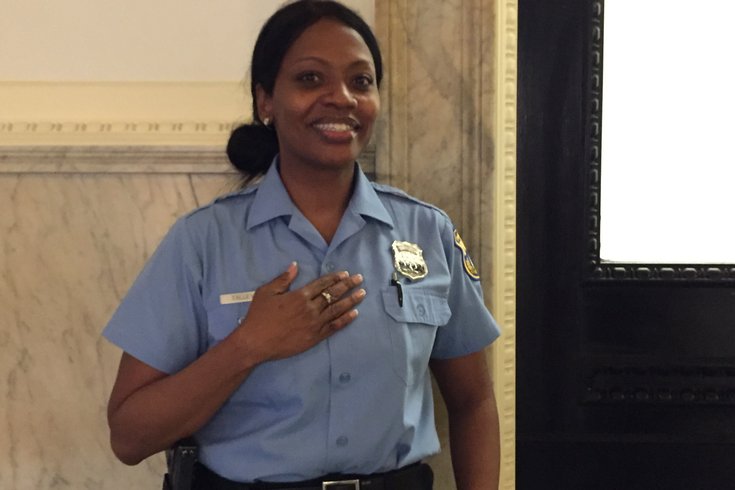
April 22, 2016
 Hayden Mitman/for PhillyVoice
Hayden Mitman/for PhillyVoice
Philadelphia Police Officer Roslyn Talley, who has a daughter who has autism, testified on Friday on how the city's police force is currently in the planning stages of an expanded training program to help officers identify and address individuals with autism.
April is National Autism Awareness Month and, according to the Pennsylvania Department of Human Services, there are now more than twice as many Philadelphians diagnosed with autism than a decade ago.
In fact, according to a study from 2011, the number of people on the spectrum who live in the city rose from 2,142 in 2005 to 4,617 in 2011, an increase of 116 percent.
On Friday, City Council wrapped up two days of hearings to discuss how the city can best support residents with autism. Its Committee on the Disabled and Special Needs heard from citizens on the needs of those with autism and how the city can support those groups and provide necessary services.
City Councilman-at-Large Derek Green, chair of the committee, said he hopes to support the work of former Councilman Dennis O'Brien, an outspoken advocate of autism awareness who once said he wanted to make Philadelphia the "most autism friendly city on the planet." Green is the father of an autistic son, and co-founded the first Autism Support Class at Houston Elementary School in Mount Airy.
"Part of it is how we are preparing for the future," said Green.
Noting that about 46 percent of those with autism who receive services in the city are aged five through 12, Green said Philadelphia needs to be able to provide continuing support for individuals as they age.
Most services, he said, end at the age of 21.
"They kind of feel like they fall off a cliff when they stop receiving these services," he said.
The committee heard from advocates who work to find employment for autistic adults, those who provide support and coordination of services, and those who study the city's public health approach to the disorder.
For example, Lou Berman, president of Louie's Voice, a local non-profit group that works to provide financial, emotional and advisory support, said he started the group when he struggled to find such services for his autistic son.
"Everything was scattered. It was difficult to navigate that road," said Berman.
His group, he said, is "instrumental" in helping individuals find the care they need.
Testifying on Friday, Seth Williams, the city's district attorney, said that every year, as many as 300 individuals with autism are arrested by police. He said Philadelphia officers need to be trained to appropriately handle situations where autistic people are involved.
"Being able to understand what's going on, that's life saving," said Williams.
Officer Roslyn Talley, project development specialist of the Philadelphia police Patrol Operations, agreed with Williams.
"It's important in order for the community to build trust," she said of the need for training. "Autism is one thing you can't identify right away."
Talley, the mother of a child with autism – 18-year-old daughter, Khmaia – said the police are currently working with the Philadelphia Autism Project, an initiative launched by O'Brien, and the ASERT Collaborative, a state-funded group, to expand training for the city's police.
"I look forward to expanding the availability of that training to more police officers in Philadelphia in an effort to increase awareness of autism throughout the whole department," she said.
Following Friday's hearing, Green said he hoped the hearings will educate his fellow city council members about the unique needs of the disorder, and encourage them to protect funding for autism initiatives in the ongoing budget process. Additionally, he said he seeks to ensure the city can bring in more funding for autism-focused projects in the future.